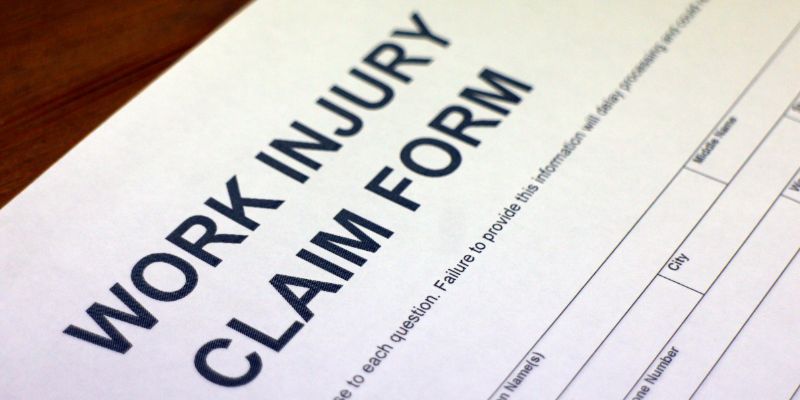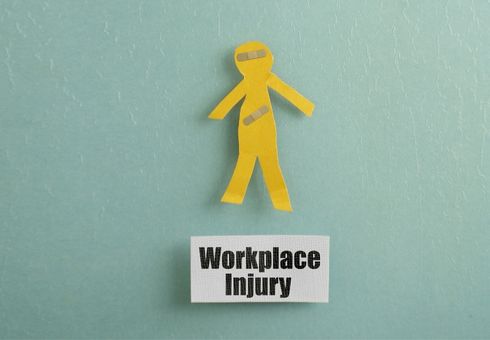Types of Workers’ Compensation Injuries in California

When going to work, there is generally a feeling of safety and protection from injury and disease. However, because accidents happen, California requires employers to carry specific benefits for employees who may be impacted. Employers must carry both insurance and policies that cover workers if they are hurt. Several benefits are included in these policies:
- Medical and Hospital Benefits
- Temporary and Permanent Disability
- Lost Wages
- Supplemental Benefits
- Death Benefits
These benefits protect the employee from having to cover these expenses on their own when they were safely and appropriately performing the duties of their job.

Types of Injuries Covered by Workers’ Compensation
There are no laws that specifically define what injuries are covered by workers’ compensation. However, there are some common examples and categories that can help you know what injuries will likely be covered.
- Physical injuries: This type of injury is the most common and easiest to prove. Your injury can be seen or felt and traced to a specific moment like a burn or broken bone, which helps to best identify the circumstances of the situation. Most physical injury claims are covered by workers’ compensation policies.
- Occupational illnesses: If your injury is the result of long-term exposure due to your occupation, you may be covered. Examples include overexposure to airborne contaminants, excessive noise, or chemicals. These can result in cancer, respiratory problems, hearing loss, or even the development of stomach issues or migraines.
- Physical-mental injuries: There are times when a physical injury causes long-term negative mental health effects. Even if the physical injury is not covered, if there is a provable link between the physical injury and the development of depression or anxiety, for example, then there could be grounds for filing a workers’ compensation claim.
- Mental-physical injuries: This is the opposite of a physical-mental injury. For these types of claims, you would need to prove that the stress or anxiety of the job was directly linked to a physical consequence such as a heart attack or other cardiovascular health problems.
- Mental injuries: While every job comes with its own stress as a part of the duties required, if you are exposed to abnormal stress, violence, or trauma at work, this could lead to ongoing negative mental health that could qualify you for benefits. If you are in a job and experience a robbery, witness a violent crime, or are exposed to oppressive conditions, you may qualify. However, it must be proven that the stress was directly related to your job.
- Repetitive stress or cumulative trauma injuries: These cannot be traced back to a specific time or place in which the injury occurred. These develop over time and often surface very slowly. These injuries can be either physical or mental. Often, you will not know it is impacting you until you notice progressively more consistent pain, such as carpal tunnel or tendonitis. You may also write off your feelings as just being tired after a long day.
- New injuries that resulted from previous injuries or a prior work-related injury: If you have a preexisting injury that you have made your employer aware of but are asked to complete duties that will further aggravate or elevate the injury, you may be covered by compensation laws. This is because the aggravation of the injury was directly linked to the duties you were asked to perform at work.
It is important to understand that not all injuries are covered. However, if a physical or mental injury can be clearly and directly linked to duties performed in the workplace, then you have a better chance of being covered by the benefits and policies.
Am I Covered?
While the laws cover all types of workers, including undocumented immigrant workers, there are a few classifications of employees that are not covered:
- Independent contractors
- Domestic workers such as babysitters, housekeepers, and nannies
- Seasonal workers
- Agricultural workers
- Undocumented workers
FAQs About Types of Workers’ Compensation Injuries in California
What 4 Types of Issues Are Not Covered by Workers’ Compensation?
Workers’ comp covers injuries that are related to performing the duties of your job. However, workers’ comp will not cover injuries sustained by an act of God, illnesses such as a singular headache, a cold, or the flu, preexisting conditions that employees had before employment, or contracting diseases that are deemed an ordinary part of life.
What Are the Most Common Workers’ Comp Injuries?
Although injuries can fall into several categories, some of the most common types of injuries include lacerations, burns, contusions, fractures, strains, eye injuries, or sprains. The type of job you are asked to perform could determine the type of injury you are more likely to receive. The more physically demanding the job, the more likely one will be injured. However, injuries can happen in every job.
What Is the Maximum Workers’ Compensation in California in 2022?
Workers’ comp rates are determined by the Division of Workers’ Compensation (DWC). As of January 1, 2022, the minimum temporary total disability is set at $230.95 per week and the maximum is $1539.71 per week. For those who qualify for lifetime benefits, the minimum and maximum should adjust as the DWC adjusts these prices.
What Is Considered a Work-Related Injury in California?
If an injury occurs due to an event or exposure in the work environment, then it is considered a work-related injury. This does not just include the physical location, but it also encompasses machinery, materials, or other equipment required to complete the duties of their job.
Workers’ Compensation in California
Accidents happen, but that does not mean you should be stuck paying for them. If you are injured physically or mentally as a direct result of your job, you should consult the Barry Law Group. We can go through the details of your claim and help you understand your options. Through our compassion, professionalism, and integrity, we are committed to helping you get the optimal outcome for your injuries. Contact the Barry Law Group today to find out how our team of experienced and knowledgeable attorneys can help you recover the damages that you may be owed.
Success of Your
Legal Matter.
Barry Law Group is comprised of attorneys and longtime staff members who are committed to the success of your legal matter. The firm understands that for most litigation is uncharted worrisome and often terrifying.



